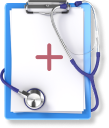Explore by categories
Top Selling products
Get your necessities at upto 10% discount on all items.
Read top articles of the day
Health articles that keep you informed about good health practices and achieve your goals.
Explore all Medicines
What Our Customers have to Say
Thank you! You will be notified once the item is available






























